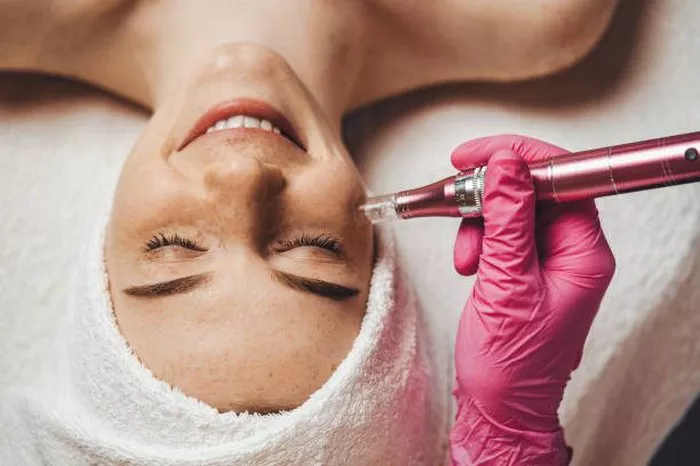Buccal fat removal is a cosmetic procedure that involves removing fat from the cheeks to create a more defined facial contour. While buccal fat removal is a popular procedure, it is important to carefully consider the risks and benefits before deciding whether to undergo this procedure. In this article, we will explore the pros and cons of buccal fat removal, the ideal candidates for this procedure, and the potential risks and complications.
Pros of Buccal Fat Removal:
There are several benefits to buccal fat removal, including:
Improved Facial Contour: Buccal fat removal can create a more defined facial contour and reduce the appearance of chubby cheeks.
Enhanced Facial Symmetry: Buccal fat removal can improve facial symmetry and balance, creating a more aesthetically pleasing appearance.
Minimal Scarring: Buccal fat removal is a minimally invasive procedure that typically results in minimal scarring.
Quick Recovery: Most patients can return to normal activities within a few days of undergoing buccal fat removal.
Cons of Buccal Fat Removal:
There are also several potential drawbacks to buccal fat removal, including:
Irreversible Results: Buccal fat removal is a permanent procedure, and the results cannot be reversed.
Risk of Over-Removal: Over-removal of buccal fat can result in a sunken or gaunt appearance, which may not be desirable.
Risk of Nerve Damage: There is a risk of nerve damage during buccal fat removal, which can result in numbness or loss of sensation in the cheeks.
Limited Effect: Buccal fat removal can only address excess fat in the cheeks and may not be effective for addressing other facial concerns.
Ideal Candidates for Buccal Fat Removal:
The ideal candidates for buccal fat removal are individuals who are in good overall health and have excess fat in the cheeks that is not responsive to diet and exercise. Candidates should also have realistic expectations for the results of the procedure and be willing to undergo a permanent change in their facial appearance.
Potential Risks and Complications:
Like any surgical procedure, buccal fat removal carries some risk of complications. These may include:
Infection: There is a risk of infection following buccal fat removal, which can be treated with antibiotics.
Bleeding: Some bleeding is normal following buccal fat removal, but excessive bleeding may require additional treatment.
Swelling: Swelling is normal following buccal fat removal and typically resolves within a few days.
Nerve Damage: There is a risk of nerve damage during buccal fat removal, which can result in numbness or loss of sensation in the cheeks.
Conclusion:
Buccal fat removal is a cosmetic procedure that can create a more defined facial contour and improve facial symmetry. While there are several benefits to this procedure, there are also potential risks and complications that should be carefully considered before deciding whether to undergo this procedure. Ideal candidates for buccal fat removal are individuals who are in good overall health and have excess fat in the cheeks that is not responsive to diet and exercise. As with any surgical procedure, it is important to carefully consider the risks and benefits and consult with a qualified and experienced cosmetic surgeon before undergoing buccal fat removal.
FAQS
1. Will I regret buccal fat removal?
While buccal fat removal can provide a more sculpted facial appearance for some individuals, it’s essential to carefully consider the potential risks and benefits before undergoing the procedure. Regret can vary from person to person and may depend on factors such as expectations, surgical outcomes, and individual preferences. It’s crucial to have realistic expectations and thoroughly discuss your goals and concerns with a qualified plastic surgeon before deciding to proceed with buccal fat removal.
2. Am I a good candidate for buccal fat removal?
Good candidates for buccal fat removal typically have excess fat deposits in the cheeks that create a round or chubby facial appearance, even when at a healthy weight. Ideal candidates should be in good overall health, have realistic expectations about the outcomes of the procedure, and understand the potential risks involved. A consultation with a board-certified plastic surgeon is necessary to determine if buccal fat removal is suitable for your individual needs and goals.
3. How do I know if I need buccal fat removal?
Individuals considering buccal fat removal often desire a more sculpted and defined facial contour. Signs that you may benefit from buccal fat removal include having round or chubby cheeks that persist even with weight loss, a desire for a more angular or defined jawline, and dissatisfaction with the appearance of the lower face. A consultation with a qualified plastic surgeon can help assess your facial anatomy and determine if buccal fat removal is the right option for achieving your desired aesthetic goals.
4. At what age should you get buccal fat removal?
The ideal age for buccal fat removal can vary depending on individual factors such as facial anatomy, genetics, and personal preferences. While buccal fat removal is often performed on younger adults in their 20s to 40s, it can be appropriate for individuals of various ages who are bothered by excess fat in the cheeks. It’s essential to discuss your goals and concerns with a board-certified plastic surgeon, who can evaluate your candidacy and recommend the most suitable timing for buccal fat removal based on your unique circumstances.


